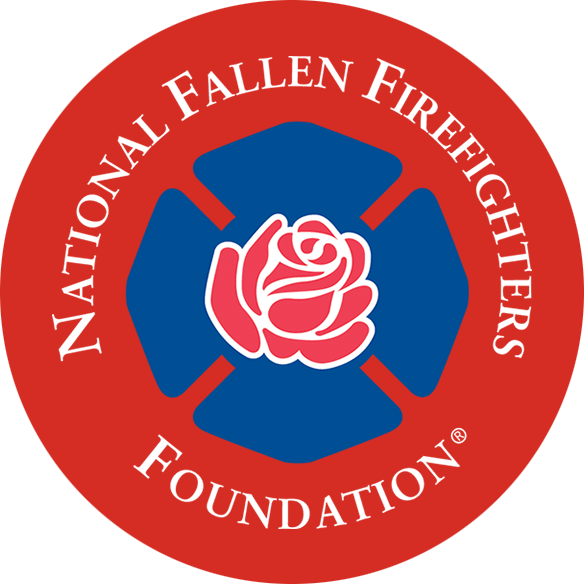The National Fallen Firefighters Foundation offers a variety of training for the fire service including courses on: community risk reduction, firefighter behavioral health, firefighter LODD prevention, and LODD preparedness.
» Download: Fire Service Training Opportunities Brochure «
Firefigher Behavioral Health:
LODD Preparedness:
Leadership:
LODD Prevention:
Community Risk Reduction/Fire Prevention:
Taking Care of Our Own®
- Training Type: LODD Preparedness
- Format: Classroom
- Duration: 6 hours
A fire department does not know when it will have a line-of-duty death or serious injury. Does it have a plan in place? Are personnel records current? Does the department know how to make timely and proper notification to the survivors? Fire chiefs and survivors tell us that most fire departments are not prepared for a line-of-duty death. Taking Care of Our Own® provides senior fire officers specific information and valuable insights.
The course includes stories from family members who have lost a loved one and a fire chief who has been in the unfortunate position of telling a survivor that their firefighter has been killed in the line of duty. Survivors will share what went well, what didn’t go well and what a department can do to be prepared. The course includes information about Public Safety Officer Benefits as well as valuable insights from a behavioral health specialist who gives guidance on the resources that should be made available when dealing with a line-of-duty death (LODD) and what elements should be included when developing a LODD policy.
- Learn More: About Taking Care of Our Own® Training
- Get Training: Host a Taking Care of Our Own® Training
LAST (Local Assistance State Team) Training
- Training Type: LODD Preparedness
- Format: Classroom
- Duration: 8 hours
Everything that happens immediately after a line-of-duty death affects the way the family, the department, and the community recover from the loss. Lack of resources and planning often adds to the confusion and pain that occurs. The best place for a department to turn for support is within its own state or region. Through a collaborative effort with the Department of Justice, this course will provide the needed training to help establish state and regional Local Assistance State Teams (LAST) to assist in the event of a line-of-duty death.The primary objective of the LAST team is to provide assistance and comfort to the family and department after a line-of-duty death and to help with filing for Federal, state and local benefits.
- Read More: About the Local Assistance State Team Program
- Training Offered by NFFF as Needed
Courage to Be Safe®
- Training Type: LODD Prevention
- Format: Classroom (General Delivery & Train-the-Trainer) and Online
- Duration: 4 hours
This course is a provocative and moving presentation by the National Fallen Firefighters Foundation, through the Everyone Goes Home® Program, that is designed to change the culture of accepting the loss of firefighters as a normal occurrence.
Building on the untold story of line of duty death survivors, it reveals how family members must live with the consequences of a firefighter death. This presentation provides a focus on the need for firefighters and officers to change fundamental attitudes and behaviors in order to prevent line of duty deaths. The central theme promotes the courage to do the right thing in order to protect yourself and other firefighters and ensure that “Everyone Goes Home” at the end of the day.
Firefighters must have the courage to face a multitude of risks in order to save lives and protect their communities. Their courage allows them to willingly risk their own lives so that others can be saved. A different type of courage is required to stay safe in potentially dangerous situations, avoiding needless risks and tragic consequences.
- Learn More: About Courage to Be Safe® Training
- Get Training: Contact Your Everyone Goes Home® State Advocate
- Online Training: Courage to Be Safe®
After Action Review (AAR)
- Training Type: LODD Prevention
- Format: Classroom
- Duration: 4 hours
Conducting an after-action review, or debrief, enables crew members to analyze what happened, why it happened during an incident and what improvements can be made. It also provides department leaders suggestions for change, if necessary. After-action reviews in the formal sense were originally developed by the military and all effective leaders have used them as they support a culture of accountability. AAR debriefs can be structured and formal (appropriate after a large complex event) or informal, run by a company officer for a quick review. The key to successfully using the AAR as a tool for culture change in the fire service is that it has to be done after every incident, no matter how small or seemingly routine for, as we know, many firefighters die in connection to what are perceived to be routine calls.
- Get Training: Sign Up for After Action Review (AAR) Training
- Online Training: Everyone Goes Home: After Action Review
Leadership, Accountability, Culture and Knowledge (LACK)
- Training Type: LODD Prevention
- Format: Classroom
- Duration: 4 hours
Is your department on the path to a LODD? This compelling presentation by the National Fallen Firefighter Foundations examines the root causes of LODD’s and the role of Leadership, Accountability, Culture and Knowledge as it influences the end result. Many fire departments across the United States “LACK the Right Stuff” to prevent them from being on a path to a line of duty death, with Leadership, Accountability, Culture and Knowledge being the elements that need to be addressed and managed in those environments. Through education and training, those departments can improve their survivability by understanding the root causes of firefighter fatalities and tackling these four elements with special emphasis on understanding fire service culture.
- Get Training: Sign Up for Leadership, Accountability, Culture and Knowledge (LACK) Training
- Be a LACK Instructor: Sign Up to Teach Leadership, Accountability, Culture and Knowledge (LACK)
- Online Training: Leadership, Accountability, Culture and Knowledge (LACK)
Stress First Aid (SFA) for Firefighters and Emergency Services Personnel
- Training Type: Firefighter Behavioral Health
- Format: Classroom
- Duration: 4 hours
Stress First Aid (SFA) is a flexible set of tools used to care for stress reactions in firefighters and rescue personnel. Unlike other acute stress management procedures, SFA was designed specifically to support firefighters and rescue personnel. The goal of SFA is to restore health and readiness after a stress reaction. SFA is a toolkit that emphasizes the importance of continuously monitoring the stress of fire and rescue personnel and to quickly recognize and appropriately help individuals who are reacting to stress and are in need of interventions to promote healing.
SFA monitors the progress of recovery to ensure a return to full-function. SFA fosters strong leadership and unit cohesion. SFA is individualized to meet the needs of each person in each context; there are no one-size-fits-all SFA solutions.
- Get Training: Sign Up for Stress First Aid (SFA) Training
- Online Training: Stress First Aid for Fire and EMS Personnel
Community Risk Reduction (CRR): Can We Use The 16 Firefighter Life Safety Initiatives to Accomplish This?
- Training Type: Community Risk Reduction/Fire Prevention
- Format: Classroom
- Duration: 4 hours
The National Fallen Firefighters Foundation has partnered with Vision 20-20 to assess the current state of Community Risk Reduction (CRR) throughout the United States by conducting a nationwide survey to determine how fire departments are using the 16 Firefighter Life Safety Initiatives to advance CRR. Based on the results, a model management program has been developed by 12 demonstration departments who were selected for their long-standing commitment to CRR. Strategies included the development of CRR-specific strategic goals that any fire department can adapt to local situations.
The presentation will include a review of the national survey, presentation of resources from the demonstration departments, and a question and answer session from our presenters. Special attention will be paid to the 16 Firefighter Life Safety Initiatives, especially Initiatives 14 (Public education must be championed as a critical fire and life safety component of every fire department) & Initiative 15 (Advocacy must be strengthened for the enforcement of codes and the installation of home fire sprinklers).
- Get Training: Sign Up for Community Risk Reduction (CRR) Training
Creating Change in the Fire Service
- Training Type: LODD Prevention
- Format: Online
- Duration: 1 hours
This module is a roundtable discussion between five fire service leaders about how to create change in the fire service and lead a culture of safety. The roundtable discusses how to lead an organization where safety is a primary focus, including making safety a priority, handling resistance, extending responsible behavior modeling to “informal leaders” in the ranks, crew resource management, fostering an environment of trust, and risk mitigation. The discussion was unscripted and guided by only a few questions posed to the group.
The Fire Hero Learning Network recommends that you take this module in conjunction with the Leadership, Accountability, Culture, and Knowledge (LACK) module because the concepts discussed in this roundtable go hand-in-hand with the information in the LACK module.
- Online Training: Creating Change in the Fire Service
Attributes of Leading
- Training Type: Leadership
- Format: Classroom (General Delivery & Train-the-Trainer)
- Duration: 6 hours
Attributes of Leading is designed to build more effective fire service leaders of all ranks. is a highly interactive, real-world applicable, case study-based course available in two formats, Train-the-Trainer, and direct course delivery. Both formats are 6 hours in length and best delivered to audiences of no more than 12 attendees. The program focuses on twelve essential qualities of effective leading.
- Learn More: Attributes of Leading

